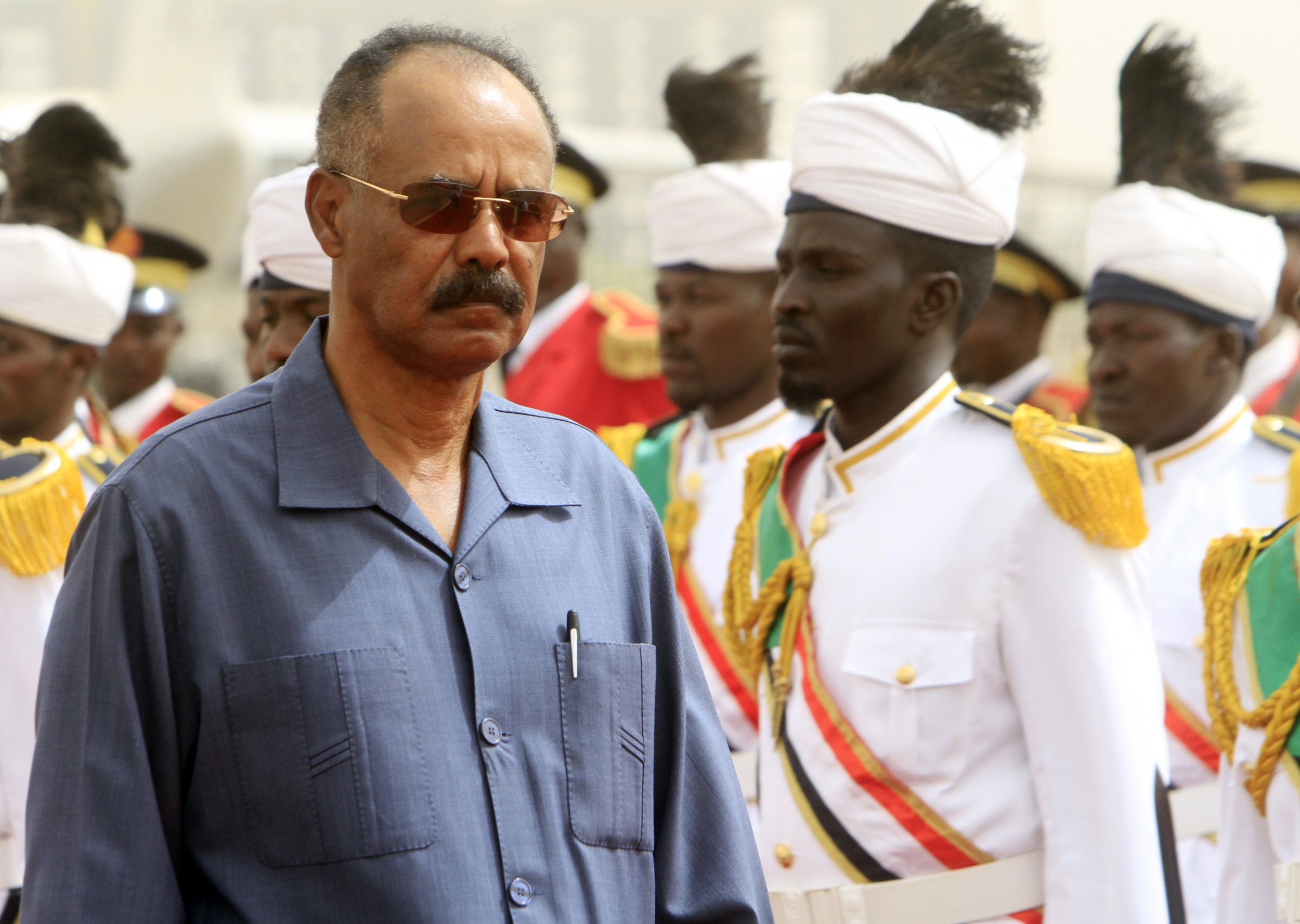Eritrea and Equatorial Guinea have been ranked among the world’s top 10 most censored countries in a report released Tuesday by the New York-based media watchdog, Committee to Protect Journalists.
Article 19 of The Universal Declaration of Human Rights gives everyone the right to access news and express opinions.
However, the report by the Committee to Protect Journalists (CPJ) said the 10 worst countries “flout the international standard by banning or severely restricting independent media and intimidating journalists into silence with imprisonment, digital and physical surveillance, and other forms of harassment.”
CPJ’s research was based on many factors, including the absence of and/or restrictions on privately owned or independent media, criminal defamation laws, and criminal restrictions on the dissemination of false news. The report was also based on restrictions on journalists’ movements, blocking of websites, and jamming of foreign broadcasts, among others.

Eritrea
Eritrea topped the list of the 10 most censored countries.
Maintaining a legal monopoly on Eritrea’s broadcast media since 2001 and controling state media journalists, DW Akademie said alternative sources of information such as the internet or satellite broadcasts of radio stations in exile are restricted through occasional signal jams and by the poor quality of the government-controlled internet.
A March 2019 report by the Collaboration on International ICT Policy for East and Southern Africa suggests that the state is so “brutal or commanding” as to “render ordering overt internet disruptions unnecessary.” On May 15, 2019, the BBC reported a social media shutdown in Eritrea, ahead of the country’s Independence Day celebrations.
The CPJ report labelled the Eritrean government as “the worst jailer of journalists in sub-Saharan Africa,” noting at least 16 journalists had been jailed since December 2018 and none received a trial.
About seven journalists are reported to have perished in custody, according to reports that CPJ says it has not been able to confirm due to the climate of fear and tight state control.
Over 100 leading African journalists, scholars, and rights activists wrote an open letter to President Isaias Afewerki in June this year, asking to visit long-imprisoned journalists and activists. This request was rejected, and adjudged “inappropriate” by Eritrea’s Ministry of Information.

Equatorial Guinea
Ranked eighth, the government of Equatorial Guinea controls what journalists report in the country. All broadcast media, except for RTV-Asonga, a network owned by the president’s son, Teodoro Nguema Obiang, who is also the vice president.
Both local and international broadcasters have been banned from covering certain subjects close to the presidency or deemed threatening to the image of the country.
While privately-owned newspapers do exist, journalists work under threat of prosecution for coverage deemed critical of the president, his family, or the government in general, and thus frequently self-censor, according to a June 2019 report by Civicus.
An October 2018 civil society submission to the U.N. Universal Periodic Review reports that websites of foreign news outlets and the political opposition are among those regularly blocked.
The 1997 Press, Printing and Audiovisual Law restricts journalistic activity, including allowing for official prepublication censorship. Defamation and libel remain criminal offences under the penal code, according to Civicus and Freedom House’s Freedom of the Press report.
The internet was reportedly shut down in November 2017, on the day of voting for parliamentary and municipal elections, and Facebook was blocked for about three weeks prior to the vote, according to news reports and civil society group, EG Justice.

Cartoonist Ramón Nsé Esono Ebalé’s story illustrates the plight of journalists in Equatorial Guinea. He was arrested in September 2017 by the country’s authorities when he returned from exile to renew his passport. According to CPJ, he was interrogated about his drawings and blog that featured critical commentary on the president, and imprisoned for six months on false charges of money laundering and counterfeiting.
After his release in March 2018, the authorities prevented him from returning home to his wife and kids and still didn’t renew his passport for several months.










